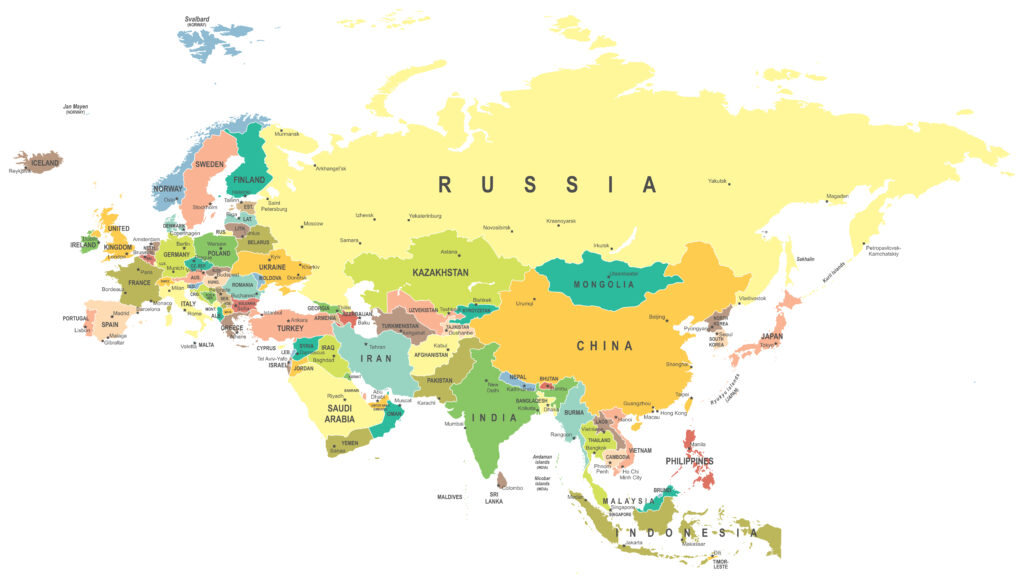
By Fred Weir, Christian Science Monitor, 11/23/21
War clouds are gathering on the Russia-Ukraine border, as Moscow assembles a major force within striking distance of Kyiv for the second time this year.
The buildup of 100,000 troops and heavy equipment in Russia’s western military sector, near Ukraine, has raised the fears of some in Kyiv and Washington that an invasion is imminent.
Analysts say the threat is real and seems unlikely to be drawn down, as happened following what looks like a full dress rehearsal last spring, after the Biden administration agreed to a summit with Russian President Vladimir Putin and scaled back planned naval exercises in the Black Sea.
But war is not Russia’s goal, they add. Such a conflict would be prohibitively costly and intensely unpopular in Russia, which is home to the world’s biggest Ukrainian diaspora and where many millions have family and close friends in Ukraine.
Rather, the buildup is meant to back up clear demands that Mr. Putin has delivered to Ukraine and the West. Analysts say that what Russia wants are permanent guarantees that countries like Ukraine and other former Soviet states will not join NATO and will remain neutral – as Finland was during the Cold War – as a new basis for regional stability. The aim of the troop deployments is to concentrate minds in Kyiv and the West about Moscow’s concerns, they say.
“Putin said that ‘tension is good,’ meaning that our Western counterparts should be kept alarmed, only then will they take Russia’s interests into account,” says Fyodor Lukyanov, editor of Russia in Global Affairs, a leading Moscow-based foreign policy journal. “It looks like Putin wants to open a new chapter, to finally get the perception on the Western side that NATO enlargement is dead.”
Russian security
In a speech to the Russian foreign ministry last week, Mr. Putin slammed the West for dismissing Russia’s “red lines” concerning Ukraine, and said that NATO’s arming and military integration with Ukraine must end. He complained that two decades of NATO expansion into the region has brought a major threat to Russia’s doorstep, and that Moscow will not tolerate Ukraine’s potential membership in what it sees as a hostile military alliance.
“It is imperative to push for serious long-term guarantees that ensure Russia’s security in this area, because Russia cannot constantly be thinking about what could happen there tomorrow,” Mr. Putin said.
Though Ukraine’s NATO application has been temporarily shelved, the alliance has consistently maintained that Ukraine will eventually join. For the Kremlin, which has seen all the Soviet Union’s former Warsaw Pact allies and the three ex-Soviet Baltic States already integrated into the alliance, the prospect of NATO forces only a three-day march from Moscow was never going to be acceptable, says Mr. Lukyanov.
“Western leaders have believed for decades that every country has the right to join NATO, and NATO should accept them without taking into account the strategic implications,” he says. “That’s something new in history, it’s totally opposed to classical strategic thinking, but after the collapse of the Soviet Union, Western leaders embraced this idea that NATO should just expand, that it was somehow the right thing to do, and that no one should oppose that. It’s an ideological belief, not one based on serious strategic or military calculations.
“When NATO enlargement began, back in the ’90s, no one expected Russia to recover as quickly as it has. But Russia is back, it is deeply concerned about its strategic neighborhood, and it needs to make clear that Ukraine must not join NATO. Putin’s point is that we need Western leaders to take that seriously, and not just in words.”
Putin gives his annual state of the nation address in Moscow, April 21, 2021, amid a Russian troop buildup near the border with Ukraine. Although that surge was drawn down after the White House agreed to a summit with Mr. Putin, a similar drawdown does not seem forthcoming for the current Russian troop deployment.
Loggerheads between Moscow and Kyiv
Part of Mr. Putin’s frustration may be that Ukrainian President Volodymyr Zelenskyy, who was elected largely on promises to bring peace to war-weary Ukraine, has made no headway in that area. Instead, Mr. Zelenskyy has appealed to the West to rapidly admit Ukraine into NATO and cancel Russia’s controversial Nord Stream 2 pipeline, demanded that the Minsk 2 peace accords be revised, and taken other positions that infuriate Moscow.
“Russia is disillusioned with Zelenskyy, and sees no hope any longer that he might start a dialogue about ending the conflict,” says Andrei Kortunov, head of the Russian International Affairs Council, which is affiliated with the foreign ministry. “The mood in Moscow is that there is no point in talking with Kyiv, and we need to sort this out with Washington.”
Read full article here.
Putin is wise in drawing the “red line” in Ukraine. The Kiev coup took him by surprise, but now he has had time to consider just what NATO operatives are up to. I doubt that any stingers or other military equipment will be coming to Ukraine without an appropriate response.
The troops are there so what happened in Georgia doesn’t happen again. In Georgia it took what 3 days to get troops in to defend ? . V. Putin was at the Olympics that time and he will be in China attending the Olympics. Russian troops won’t cross the border but will defend Dubass.
My spelling sucks;-)
This a good read also.
https://covertactionmagazine.com/2021/11/26/vladimir-the-terrible-fit-the-needs-of-the-u-s-military-industrial-complex-for-an-evil-foreign-enemy-but-the-real-putin-is-well-regarded-by-many-russians-f/